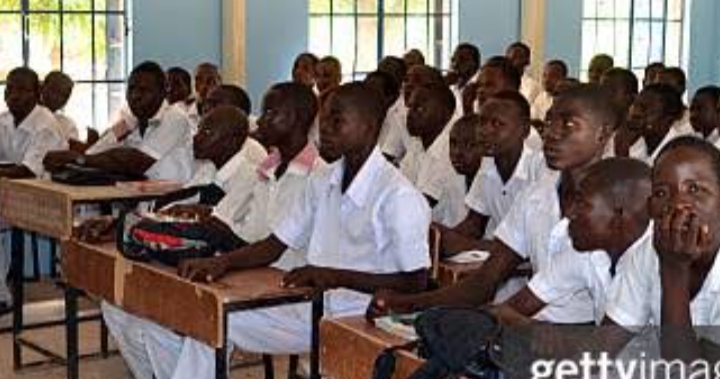News
FG adds plumbing, hairstyling, tilling,, 12 other trades to basic education curriculum(List)

By Kayode Sanni-Arewa
The Federal Government has announced an update to its basic education curriculum, introducing 15 new trades to improve students’ practical skills and employability.
This new curriculum is set to take effect in January 2025 for primary and junior secondary students across the country.
The revised curriculum is expected to improve job prospects for students when it is implemented in January 2025, helping them meet the challenges of a rapidly changing economic environment.
These changes are expected to provide students with a broader range of skills and better prepare them for the job market after completing their education.
New trades introduced in the curriculum
The updated curriculum includes 15 new trades, covering various sectors, including construction, technology, and agriculture. Among the new trades introduced are plumbing, tiling and floor works, and POP (Plaster of Paris) installation.
These skills are expected to give students a foundation for work in the construction and building industries. Additionally, trades like event decoration and management, bakery and confectioneries, and hairstyling have been added to offer students opportunities in the service sector.
The perceived goal is to help students develop skills they can use in their careers, whether they choose to work for a company or start their own businesses,” the National Orientation Agency noted in its post.
The inclusion of these practical skills seeks to meet the growing demand for vocational expertise in Nigeria’s economy.
Preparing students for a changing job market
With these updates, the government aims to make students more competitive in the labour market by equipping them with practical skills. In addition to construction and service-related skills, the curriculum now includes courses on GSM repairs, satellite/TV antenna installation, and CCTV and intercom installation. These technical skills are particularly relevant as technology continues to drive global job markets.
The curriculum also includes a focus on agriculture, with students being taught skills related to crop production, beekeeping, horticulture, and livestock farming, including poultry and rabbit rearing.
These agricultural skills are designed to support the country’s vast agricultural sector, giving students the knowledge to contribute to Nigeria’s food production and rural development.
Incorporating digital literacy and emerging technologies
Another important addition to the curriculum is the inclusion of basic digital literacy, which covers IT and robotics.
The government has prioritized teaching these skills to students from an early age, preparing them for the growing digital economy.
By incorporating IT and robotics into the curriculum, Nigeria drives to foster a new generation of professionals who are well-versed in emerging technologies, ensuring they are ready for the demands of a modern workforce.
The National Orientation Agency highlighted that this update in education will not only provide students with the skills required for current jobs but also prepare them for future opportunities in fields that are rapidly evolving, such as tech and digital services.
Impact on Nigerian youth and employment
The introduction of these vocational skills is also seen as a response to the high unemployment rates in Nigeria, especially among young people.
By teaching students practical trades, the government hopes to reduce youth unemployment by providing more pathways for self-employment and increasing the availability of skilled labor in key industries.
The revised curriculum is expected to improve job prospects for students when it is implemented in January 2025, helping them meet the challenges of a rapidly changing economic environment.
The government’s efforts to provide relevant skills training will hopefully have a long-term impact on Nigeria’s workforce.
News
Boko Haram Kill Mourners, Kidnap Others In Borno

Suspected Boko Haram terrorists have killed 15 mourners and abducted many in Kwaple, a village near the Chibok Local Government Area in Borno State.
Our correspondent gathered that the attack occurred around 7 pm on Monday when they gathered in a funeral rite for a community member.
Confirming the attack, the Chairman of Chibok Local Government Area, Modu Mustapha, said, “The terrorists attacked during a funeral, a lot of people were killed.”
A local source who pleaded not to be identified revealed that 15 people died, while many others were abducted.
“It was a horror experience when they came shooting. I was not there, but the information reaching me is that it was 15 people, mostly men, who died.
“They burnt an EYN church in the area, burned about five houses, and other properties,” the source added.
Meanwhile, efforts to reach the Spokesperson for the Borno State Police Command, ASP Nahum Daso, for details of the attack and other surrounding information proved abortive as he neither picked up nor returned calls.
Details later…
News
Just in: Popular Nigerian billionaire, E-Money nabbed by EFCC

Naijablitznews reports that popular billionaire Emeka Daniel Okonkwo otherwise known as E-Money has been nabbed in Lagos by the Economic and Financial Crimes Commission, EFCC over alleged Naira abuse.
E-Money, who is the CEO of Emmy Cargoes Nigeria Limited and Five Star Music, was arrested in Lagos State for alleged abuse of the naira.
He is being investigated for allegedly spraying both Naira and US dollars at a party in Lagos in violation of Nigeria’s currency laws.
As at the time of filing this report the anti-graft agency has yet to issue an official statement regarding his arrest.
News
Bitcoin firms push toward global currency shift as govts signal support

By Francesca Hangeior
Bitcoin-focused investment firms are stepping into the spotlight as key players in a growing global movement toward the widespread adoption of cryptocurrency as a reserve asset.
Industry leaders and market analysts suggest that this shift—commonly referred to as “hyperbitcoinization”—could eventually displace traditional fiat currencies and redefine global financial systems.
Adam Back, CEO of Blockstream and the inventor of Hashcash, believes that firms holding Bitcoin in their treasuries are strategically positioning themselves ahead of this potential transformation. “
Companies like Strategy are taking advantage of the gap between Bitcoin’s future potential and the current state of fiat money,” Back said.
He described the practice as a “logical and sustainable arbitrage” scalable enough to support large corporations transitioning their treasuries to Bitcoin.
One of the frontrunners in this strategy is Strategy, whose Bitcoin holdings have already generated over $5.1 billion in profit since the beginning of 2025, according to co-founder Michael Saylor.
The firm’s bullish stance on Bitcoin has been instrumental in legitimizing corporate treasury allocations into digital assets.
Across the globe, Asia is also seeing a surge in institutional Bitcoin adoption. Metaplanet, often referred to as “Asia’s MicroStrategy,” recently surpassed 5,000 BTC in holdings and aims to acquire 21,000 BTC by 2026.
These moves illustrate the expanding geographical spread of institutional confidence in Bitcoin’s long-term viability.
At the regulatory level, the climate in the United States is becoming more favorable. The Federal Reserve recently reversed its 2022 guidance that had discouraged banks from engaging with cryptocurrencies. Michael Saylor welcomed the development, stating that U.S. banks “can now begin openly supporting Bitcoin without regulatory concerns.”
In an even more significant move, President Donald Trump signed an executive order to create a national Bitcoin reserve using BTC seized in criminal investigations. The initiative marks a historic moment in the relationship between government and cryptocurrency, signaling a new era of state-backed digital asset reserves.
Bitcoin’s price growth is also outpacing inflation rates, bolstering the argument for its superiority over fiat currencies.
“Bitcoin’s price has been growing faster than traditional fiat currencies over four-year periods,” Back noted, emphasizing Bitcoin’s fixed supply and inflation resistance as core attributes driving its adoption.
As investment firms, multinational corporations, and now governments increasingly turn to Bitcoin, momentum is building for a future where Bitcoin could serve as a dominant global reserve currency.
With market experts projecting Bitcoin’s market cap could one day exceed $200 trillion, the financial world may be on the cusp of a historic transformation.
-

 News12 hours ago
News12 hours agoCourt dismisses Emefiele’s bid to reclaim forfeited 753 duplex estate
-

 Opinion8 hours ago
Opinion8 hours agoTHOUGHTS ON CONSTITUENTS DEVELOPMENT IN OBIO-AKPOR
-

 News3 hours ago
News3 hours agoJust in: Popular Nigerian billionaire, E-Money nabbed by EFCC
-

 Metro12 hours ago
Metro12 hours agoWanted CBEX promoter surrenders to EFCC
-

 News4 hours ago
News4 hours agoKing Sunny Ade’s family opens up over his whereabouts after daughter’s alarm
-

 Politics13 hours ago
Politics13 hours agoPDP Calls Emergency Session as Top Members Flee to APC
-

 News5 hours ago
News5 hours agoEx-DIG,Olofu debunks online newspaper report, says ” I retired from NPF meritously after 35yrs service
-

 News12 hours ago
News12 hours agoFour SANs join Agabi to defend Nnamdi Kanu















